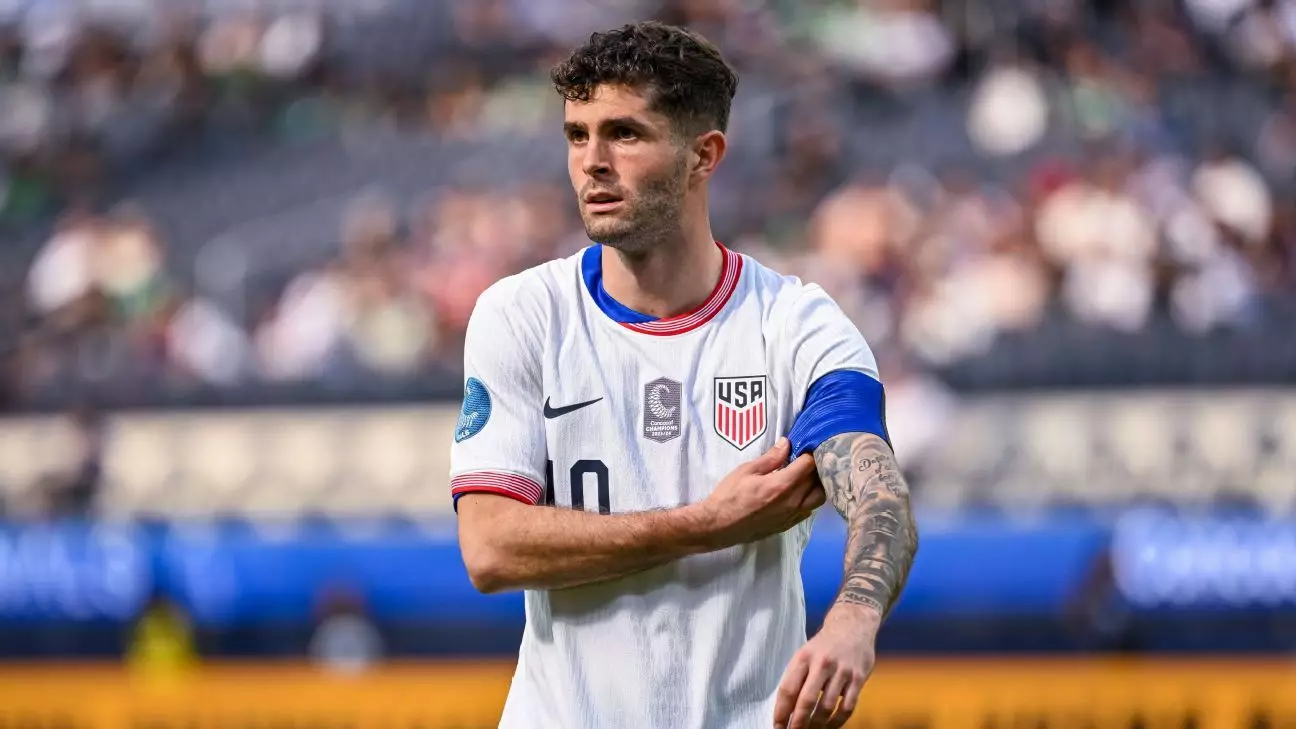In recent years, American soccer has witnessed a transformation, with an influx of talent that is beginning to garner international attention. Leading this charge is Christian Pulisic, a player so talented that head coach Mauricio Pochettino boldly declared he should be viewed as the “Lionel Messi of the U.S.” Such a comparison, while audacious, speaks to the high expectations placed on Pulisic’s shoulders within the realm of American sports. It is becoming increasingly clear that Pulisic has emerged as not just a player, but a symbol of hope and aspiration for the U.S. Men’s National Team (USMNT).
Pochettino’s comments on the “Unfiltered Soccer” podcast illuminate how Pulisic’s influence transcends mere statistics. While the coach acknowledges the risk in drawing a parallel between the two players, it’s undeniable that Pulisic’s impact is profound. Comparisons to Messi aren’t just about gears shifting in conversations about skill sets; it reflects Pulisic’s unique position in U.S. soccer culture. He’s not just another player; he’s an icon for young soccer enthusiasts across the nation who crave representation.
The Performance Metrics
Pulisic’s track record is impressive. With 32 goals and 18 assists over 76 appearances for the USMNT since his debut in March 2016, he has established himself as one of the most productive players in American soccer history. His leadership role, as evidenced by his captaincy across multiple tournaments, underscores his status as a pivotal figure in U.S. soccer dynamics. Winning three Concacaf Nations League trophies is no small feat, and yet, the accolades and numbers scarcely capture the full essence of his contributions.
At the club level, his story becomes even more compelling. Currently donning the AC Milan jersey, Pulisic just recorded his statistically best season, with 17 goals and 12 assists—figures that illustrate his evolution as a player capable of influencing outcomes in high-stakes contests. This season doesn’t just mark a personal high; it serves as a testament to his perseverance and growth in an intensely competitive European landscape.
Pressures of Representation
However, with greatness comes significant pressure. Recently, Pulisic made headlines by opting out of participating in the summer’s international friendlies and the Gold Cup following an exhausting club season. This decision, while met with some criticism, reflects a mature understanding of his own physical and mental limits. Pochettino backed this choice, emphasizing the need for players to prioritize their health and readiness, especially with the World Cup looming. Herein lies a complex reality of modern athletes: the balance between national pride and personal well-being.
The friendship and understanding between Pochettino and Pulisic showcase a progressive, player-centric approach that is often overlooked in discussions about national teams. The mentorship that exists suggests that Pulisic is, in many ways, following in the footsteps of athletes who have carved out their own paths while maintaining a connection to their origins.
Prioritizing National Pride
Pochettino’s call for American players to prioritize the national team highlights an essential cultural shift that the U.S. soccer landscape desperately needs. Comparing American players to their Argentine, Brazilian, and European counterparts, he called for an inherent desire to don the national colors—an eagerness that those players demonstrate time and again. It raises an important question: Are American players ready to embody the same fervor for their national team as their global counterparts?
Players like Pulisic can inspire not just through their play but also through their commitment to their national cause. The anticipation for the upcoming friendlies against Turkey and Switzerland, coupled with the challenges of the Gold Cup, will set the stage for a new chapter in U.S. soccer. It’s an opportunity for players to rise, to embody that critical national spirit, and for Pulisic to lead the way, showcasing that soccer in America is not just a game; it’s a burgeoning passion that is yearning to be nurtured and celebrated.
Pulisic’s journey heralds a new era—one where American soccer is not merely an afterthought but a serious contender on the global stage, embodying aspirations that resonate across generations. His trajectory will undoubtedly continue to influence the way soccer is perceived in the United States, setting the groundwork for future stars in an ever-evolving sport landscape.

